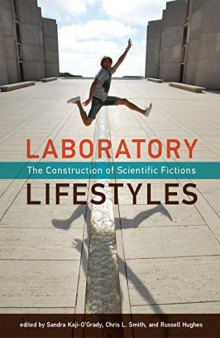 جزییات کتاب
جزییات کتاب
A generously illustrated examination of the boom in luxurious, resort-style scientific laboratories and how this affects scientists' work. The past decade has seen an extraordinary laboratory-building boom. This new crop of laboratories features spectacular architecture and resort-like amenities. The buildings sprawl luxuriously on verdant campuses or sit sleekly in expensive urban neighborhoods. Designed to attract venture capital, generous philanthropy, and star scientists, these laboratories are meant to create the ideal conditions for scientific discovery. Yet there is little empirical evidence that shows if they do. Laboratory Lifestyles examines this new species of scientific laboratory from architectural, economic, social, and scientific perspectives. Generously illustrated with photographs of laboratories and scientists at work in them, the book investigates how "lifestyle science" affects actual science. Are scientists working when they stretch in a yoga class, play volleyball in the company tournament, chat in an on-site cafe, or show off their facilities to visiting pharmaceutical executives? The book describes, among other things, the role of beanbag chairs in the construction of science at Xerox PARC; the Southern California vibe of the RAND Corporation (Malibu), General Atomic (La Jolla), and Hughes Research Laboratories (Malibu); and Biosphere 2's "bionauts" as both scientists and scientific subjects; and interstellar laboratories. Laboratory Lifestyles (the title is an allusion to Bruno Latour and Steve Woolgar's influential Laboratory Life) documents a shift in what constitutes scientific practice; these laboratories and their lifestyles are as experimental as the science they cultivate.



 دانلود کتاب
دانلود کتاب

 جزییات کتاب
جزییات کتاب





 این کتاب رو مطالعه کردید؟ نظر شما چیست؟
این کتاب رو مطالعه کردید؟ نظر شما چیست؟
